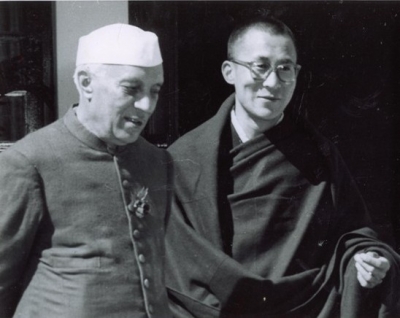
India and China share a border more than 3,440 km long and have had territorial disputes in these regions for decades. After the formation of the People’s Republic of China in 1949, the Chinese took control of Tibet in 1950 and quietly started constructing border posts as well as a road that would connect them to Tibet, in Aksai Chin.
During this time, China’s Premier Zhou Enlai offered India the North East Frontier Area (NEFA) in exchange for Aksai Chin, which is roughly the size of Switzerland. Nehru who saw the tactical advantage the Chinese would have once they took control of this area, remained adamant and refused.
Things came to a head when India provided political asylum to the spiritual head of Tibet, the Dalai Lama, in 1959.
Incensed and determined to teach India a lesson, the Chinese began planned incursions at the border. Still India did not believe that China would attack, but on 20 October 1962, China launched a well-planned and systematic attack on India.
Around 1,383 Indian soldiers died and 1,696 went missing in this one-month long war, till a ceasefire was declared on November 19, the same year.
The war was a breach of trust on the part of China and a huge blow to India, but after this war India never again took its national security for granted. It notched up its defence budget and trained its troops for high altitude warfare. The Armed Forces were given more freedom, funds and power. Consequently the war preparedness and tactical awareness of India increased manifold after the Indo-China war of 1962.
Picture Credit : Google




